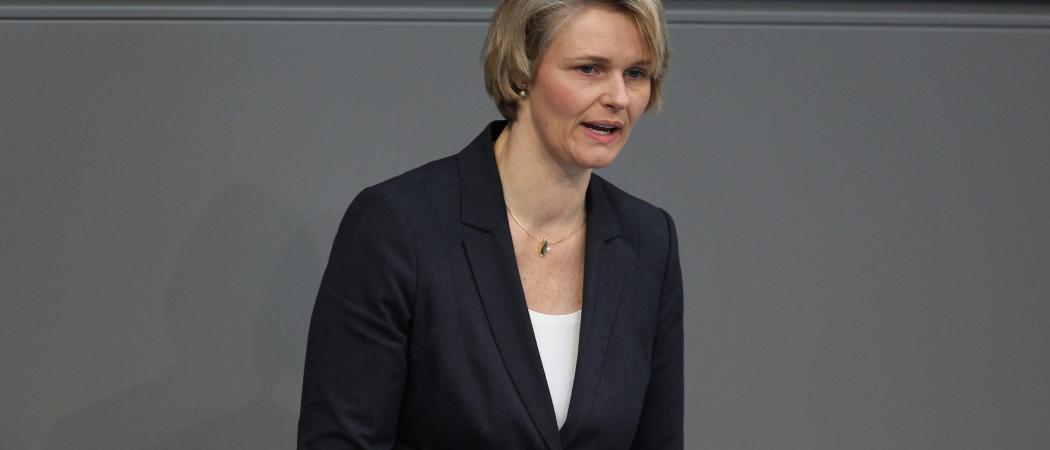Anja Karliczek has no background in research, though some welcome her outsider perspective. She will preside over a €2B increase in science spending over the next few years

Photo: www.anja-karliczek.de
German chancellor Angela Merkel produced a surprise with her nomination of a little known Bundestag politician Anja Karliczek, as education and research minister to replace Johanna Wanka, a mathematician who worked in research and higher education for many years before becoming minister.
Former hotel manager Karliczek, who has a degree in business administration from the University of Hagen, was previously a politician without a notable national profile. She was elected in 2013 from a district in North Rhine-Westphalia and serves on the German parliament’s finance and budget committee.
“The research community is very divided about her appointment,” said Martin Grund, a doctoral researcher at the Max Planck Institute for Human Cognitive and Brain Sciences.
Karliczek’s brief will include overseeing an increase in science investment. The hard-fought coalition “GroKo” agreement between her party, the centre-right Christian Democrats (CDU), and centre-left Social Democrats (SPD), has committed to an injection of at least an extra €2 billion of federal spending into R&D over the coming years.
The aim is to increase overall research spending from just under 3 per cent of gross domestic expenditure to 3.5 per cent by 2025.
“Her outside perspective could be a benefit and, clearly, she’s someone Mrs Merkel trusts,” Grund continued. “If you want a new direction, you can’t hire someone who was in the field for the last 10 years. It will be very interesting to see how she handles everything.”
Karliczek presents her outsider status as a strength. “I have little knowledge in this area and the interior workings,” she admitted in an interview on German television. “Maybe I will be able to ask the right questions because of it. I will continue asking until I have a good feeling.”
A previous interest in research is not a requirement for a new minister, said a colleague. “On the topic of science, I haven’t heard one word from her,” said the CDU official. “But the people around her know her as an efficient type; that’s why she was chosen as a whip.”
A record on scientific issues is less important than the signal her appointment transmits, said Hans-Olaf Henkel, a German MEP. “That Ms Karliczek has no record in the field of research doesn't disqualify her, of course,” Henkel said. “But it shows however, how little regard Mrs Merkel has for the importance of this portfolio.”
Other researchers said they would reserve judgement until they get an impression of the new minister’s work.
After almost six months of deadlock, the final hurdle to forming a new government in Germany was cleared on Sunday when the SPD rank-and-file sanctioned the coalition deal. The Bundestag is expected to elect Merkel chancellor for the fourth time on March 14.
Beyond Berlin, the new government wants to see “a strengthening” of the European Research Council in Brussels, and more money to help poorer EU-13 countries catch up on research.
Germany will also partner with France on artificial intelligence research, and the new government backs president Emmanuel Macron’s initiative to create new university networks.
“I hope the new cabinet keeps science and research as top priorities, which is a question of funding, but not only that,” said Günter Ziegler, a mathematician at the Free University of Berlin. “I also hope that they foster openness as a priority, when freedom of science is under attack all over the world, and even in Germany from right-wing movements.”
Correction: The original article stated that Hans-Olaf Henkel was a member of the Alternative for Germany party. In fact, he left the party in 2015.





 A unique international forum for public research organisations and companies to connect their external engagement with strategic interests around their R&D system.
A unique international forum for public research organisations and companies to connect their external engagement with strategic interests around their R&D system.